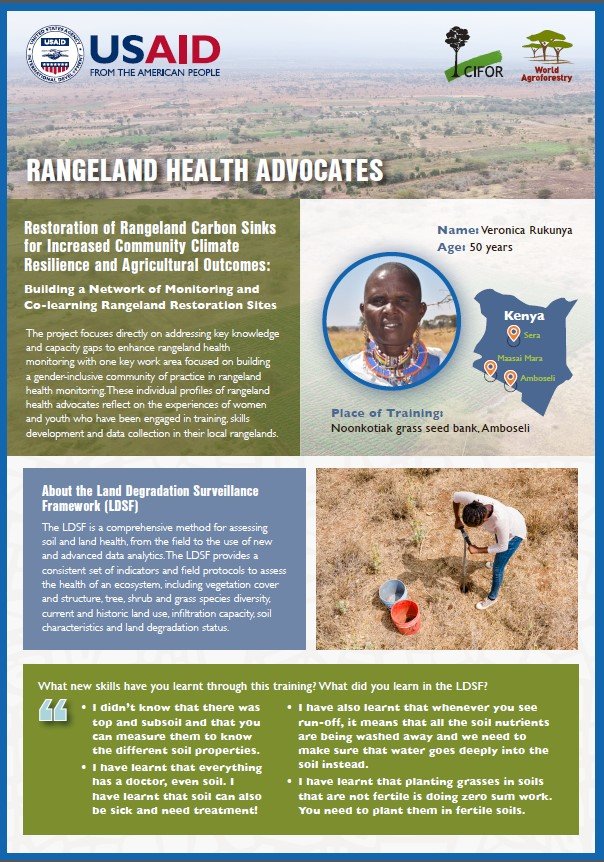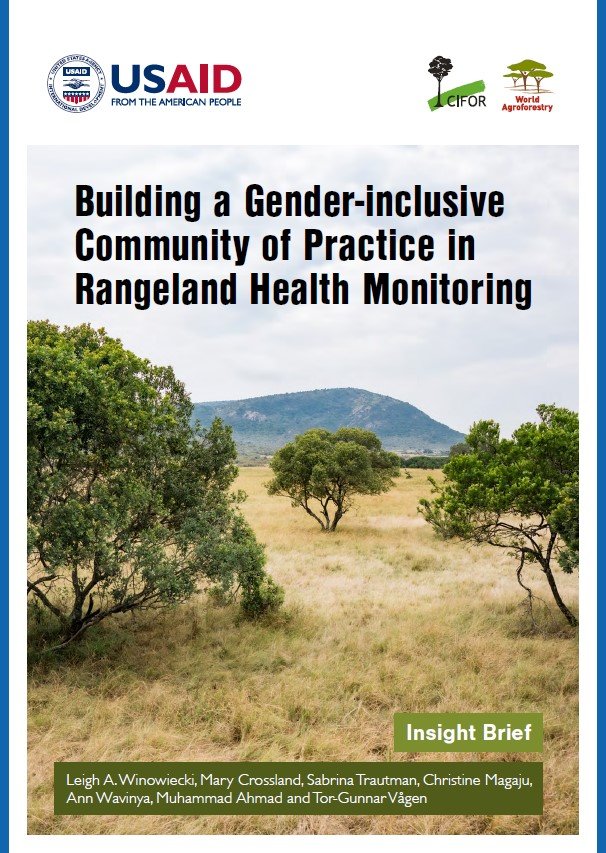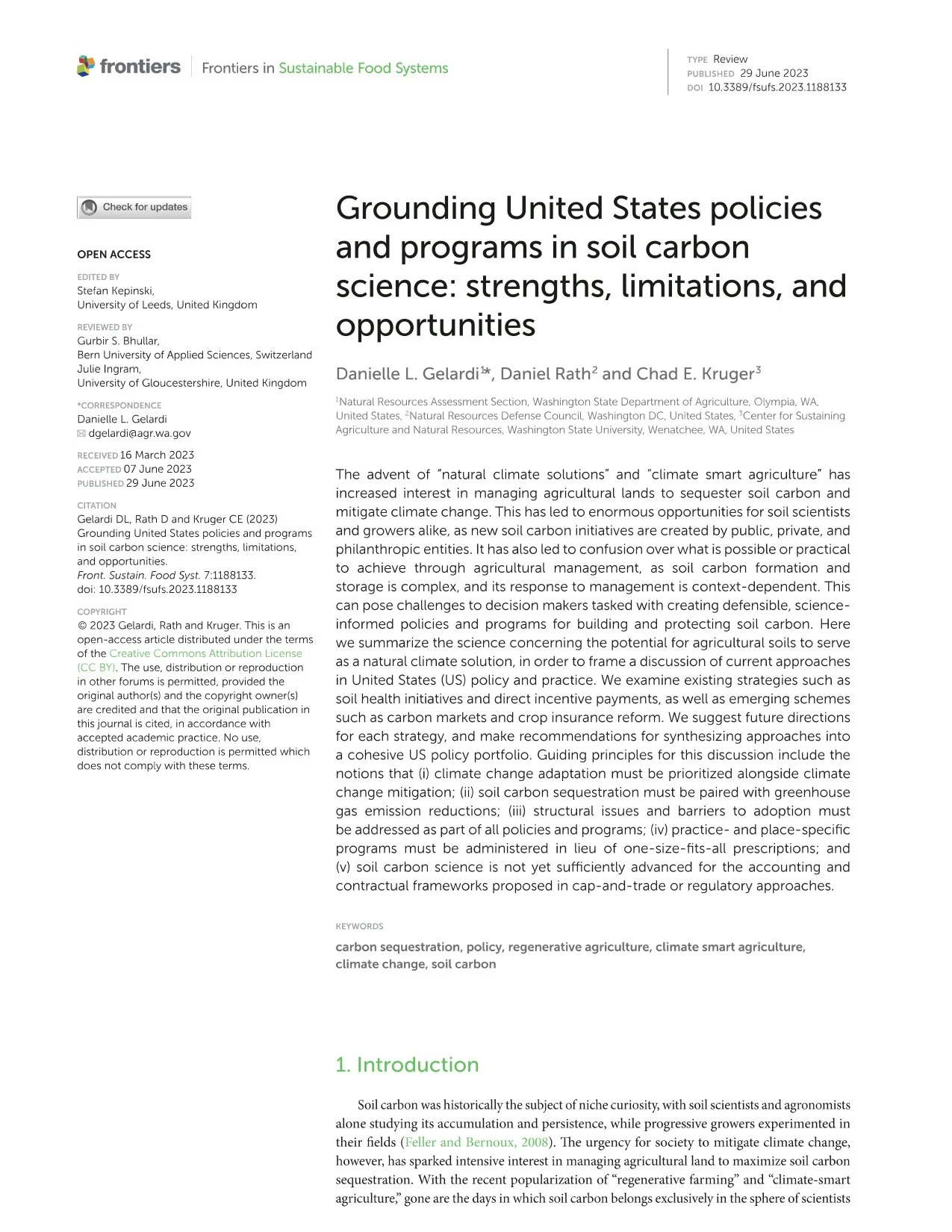Resource Library
Feature Resource:

Advocate Briefs: Restoration of Rangeland Carbon Sinks for Increased Community Climate Resilience and Agricultural Outcomes
The Restoration of Rangeland Carbon Sinks focuses directly on addressing key knowledge and capacity gaps to enhance rangeland health monitoring with one key work area focused on building a gender-inclusive community of practice in rangeland health monitoring.
These individual profiles of rangeland health advocates reflect on the experiences of women and youth who have been engaged in training, skills development and data collection in their local rangelands.

Building a Gender-inclusive Community of Practice in Rangeland Health Monitoring
This brief summarizes the capacity development activities undertaken by the project Restoration of Rangeland Carbon Sinks to build gender inclusive community of practice in rangeland health monitoring.
Specifically, the brief outlines the critical need to address gender inequalities in rangeland health monitoring and synthesises reflections from women and youth on skills they have built through capacity development activities. The brief also highlights the impact these activities are having not only in their own agency and development, but also the wider implications and impact they want to create in their communities as a result of the skills they have built and been exposed to.

Special Issue of the BAIF Journal: Carbon Offsetting and Neutrality
BAIF has been forging partnerships with global and national agencies for leveraging the strengths of the actors engaged in climate action. During the last couple of years, BAIF received accreditation as an Observer Organisation status for UNFCCC's COP as well as provisional status for UNCCD, BAIF has become a member of the Global EverGreening Alliance (GEA) Australia, Coalition of Action for Soil Health (CA4SH), International Biochar Initiative, United States and World Bioenergy Association, Sweden. Partnerships have also been developed within the country to share knowledge and undertake projects on climate change mitigation.
This issue, with its focus on the carbon offsetting and neutrality efforts of BAIF, serves as an eye opener for acceleration of voluntary action and working towards net-zero emissions, the most important goal of all responsible organisations.

Natural Carbon Sequestation: Leveraging Soils for Mitigation, Storage & Biodiversity Benefits
This presentation was given in a side event from the British Society of Soil Science at the UNFCCC COP28 in Dubai.
Learn more and download the presentation

SOIL the hidden part of the climate cycle
Excerpt:
“Soil is a natural resource which most of us either ignore or take for granted. Yet the thin layer of ‘dirt’ that covers much of the surface of the Earth is vital to the environment and invaluable to our societies.
However, soil quality is declining in many areas, meaning that it is less able to perform its essential functions. One area of concern is the effect of soil degradation on the climate, and vice versa.”
Read the full report from the European Commission (2011)

Policy Brief: Healthy soils sustain food system transformations to contribute to the net zero CO2 emission target by 2050
Business as usual strategies for agriculture, land use and land use changes will impede the contribution of the food systems to the net zero CO2 emission ambition.
Food system transformation is needed for "safeguarding food security and ending hunger, and the particular vulnerabilities of food production systems to adverse impact of climate change3".
Read the policy brief from 4p1000, CIRAD, and IRD

Grounding United States policies and programs in soil carbon science: strengths, limitations, and opportunities
Abstract
The advent of “natural climate solutions” and “climate smart agriculture” has increased interest in managing agricultural lands to sequester soil carbon and mitigate climate change. This has led to enormous opportunities for soil scientists and growers alike, as new soil carbon initiatives are created by public, private, and philanthropic entities. It has also led to confusion over what is possible or practical to achieve through agricultural management, as soil carbon formation and storage is complex, and its response to management is context-dependent… cont.

